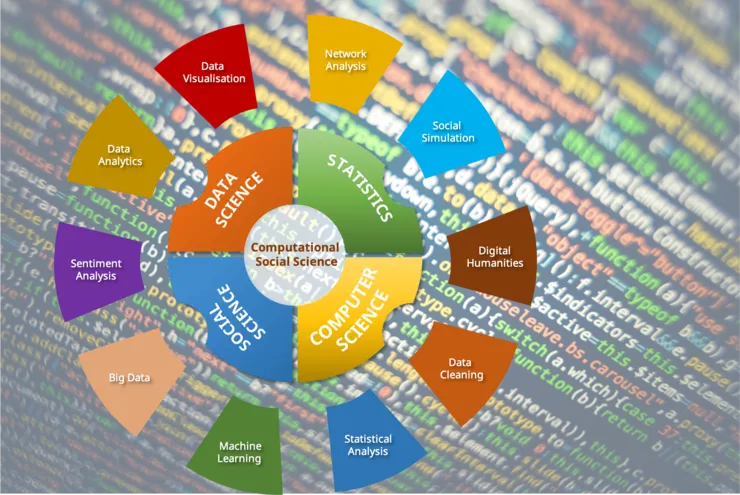Computational Social Science in Public Policy

Project Description
Computational Social Science is an interdisciplinary field that utilizes computational methods, social sciences, and statistics to analyze socio-political issues. It emphasizes leveraging data and applying various research and statistical techniques to gain insights and propose evidence-based solutions across diverse contexts. This involves the collection and analysis of large datasets (big data) using methods like machine learning. In the realm of public policy, computational social sciences hold significant promise for investigating complex issues such as poverty reduction, climate change, migration, digitalization, healthcare, social welfare, energy transition, administrative reform, and social network analysis.

Project Funding
In 2023, Dr. Hasnain Bokhari, the lead on Digitalisation at the Brandt School, was awarded a state grant by the Thüringen Ministry of Science, Economics, and Digital Society (TMWWDG) through the program "Fellowships for Innovation in Digital Higher Education in Thuringia." This program aims to incentivize the development and testing of digitally supported teaching and examination formats, such as MOOCs, blended learning, games, simulations, e-exams, and the use of AI. It also encourages the redesign of modules and study sections with the integration of digital technologies to facilitate cross-university exchange on innovative university teaching practices.
Project Goals
In the project 'Computational Social Science in Public Policy,' we are developing new digital teaching materials in the public policy domain. These resources aim to educate non-technical social science students on handling large datasets using machine learning tools like Python. By mastering algorithm design and data analysis techniques, students can effectively communicate complex information. Our initiative includes a series of data analytics courses offered year-round, featuring 'flipped teaching' and self-paced learning via Moodle. Students are encouraged to engage with digital learning materials and showcase their final projects in a datathon.
Team Members
-
Head of Digital Policy and Artificial Intelligence (Willy Brandt School of Public Policy)
Output
Publications
- Bokhari, H., & Awuni, E. T. (2023). Digital inequalities in North Africa: Examining employment and socioeconomic well-being in Morocco and Tunisia. Convergence, 13548565231209673.
- Bokhari, H. (2023). Contemporary Debates on Electoral Technologies in Pakistan Challenges and Opportunities of Electronic Voting Machines (EVMs). Islamabad: Friedrich Ebert Foundation
- Ittefaq, M., Zain, A., & Bokhari, H. (2023). Opioids in Satirical News Shows: Exploring Topics, Sentiments, and Engagement in Last Week Tonight on YouTube. Journal of Health Communication, 28(1), 53-63.
- Ramdey, K., & Bokhari, H. (2022). Digital Storytelling and ICTs for Education to Foster Sustainable Development. In ICT Systems and Sustainability: Proceedings of ICT4SD 2021, Volume 1 (pp. 459-466). Springer Singapore.


